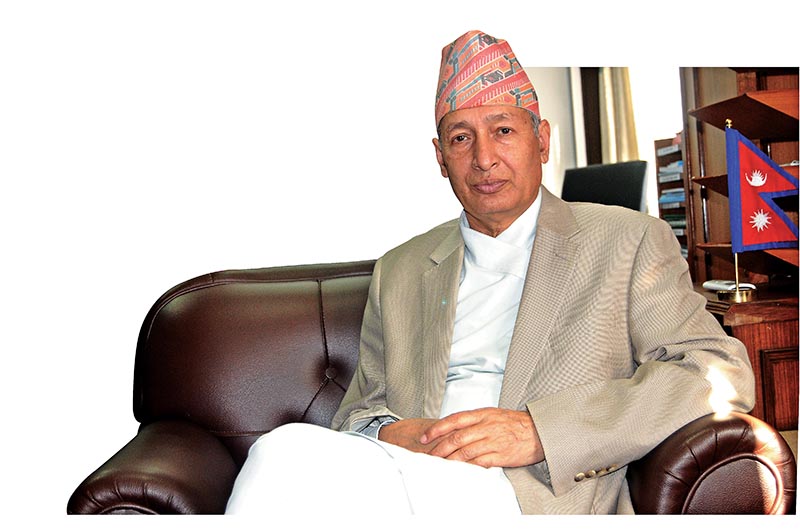BRI crucial to diversify economic risks
Kathmandu, November 18
The Belt and Road Initiative (BRI) initiated by government of China will be crucial for Nepal to diversify its economic risks, as per Finance Minister Yubaraj Khatiwada.
The BRI will diversify Nepal's risk in terms of its trade, connectivity, access to sea and different other aspects, Khatiwada said, while addressing the third international conference on China's BRI in South Asia and Nepal: Trade Investment and Connectivity Dynamics, organised by the Nepal-China Friendship Forum (NCFF) in the Capital today.
Nepal has been looking to capitalise on the economic growth that its neighbouring states have been witnessing, including investment and tourism opportunities from them. BRI is also expected to help in the transfer of technology that will facilitate the process.
“Nepal today needs to diversify its trade and bridge the yawning infrastructure deficit gap for competitive growth and development. Along with this, transfer of technology is crucial to drive growth,” said Khatiwada, adding that the BRI will facilitate Nepal on these issues.
Citing that the country's private sector is currently not in a position to fill the infrastructure deficit gap, Khatiwada opined that BRI will also be crucial to ensure infrastructure financing in the South Asian region, including Nepal.
On the occasion, Yu Hong, ambassador of China to Nepal, informed that BRI is all about the connectivity of policy, infrastructure, trade, finance and people among countries. “China intends to promote shared economic and development growth among countries through BRI. This objective can be met through collaboration among governments on the aforementioned five pillars of BRI,” she said.
Citing that foreign direct investment in China played a crucial role in the economic reform of the country, Yu said that China will focus on economic growth in the South Asian region, including Nepal through investment in different sectors.
On the occasion, Shankar Sharma, former vice chairman of the National Planning Commission, said that BRI provides a win-win situation for all as the initiative intends to use China's surplus capacities in different sectors including infrastructure and financing to enhance connectivity among nations and boost their economic growth. Similarly, he said that implementation of BRI will ensure supply security of energy and other essential goods for Nepal.
Kalyan Raj Sharma, president of NCFF, said that the two-day event will entirely examine the opportunities that BRI provides and also obstacles that have been hindering its effective implementation. The event also focuses on ways to enhance trade, connectivity and investment in the South Asian region and the role of BRI in achieving the sustainable development goals (SDGs) 2030, he added.






